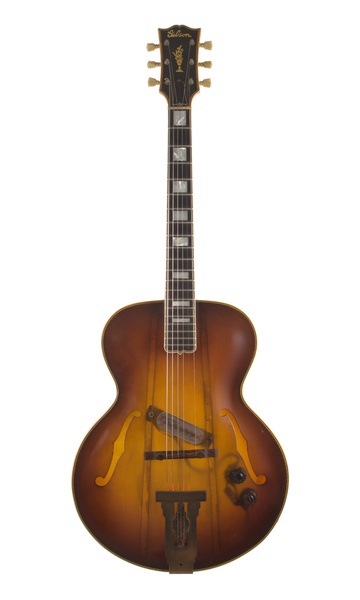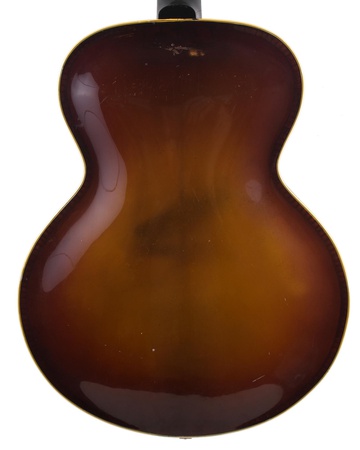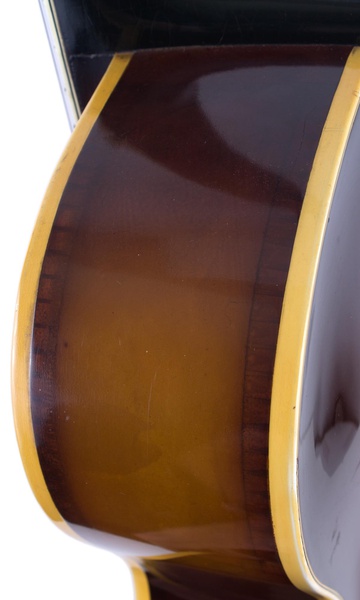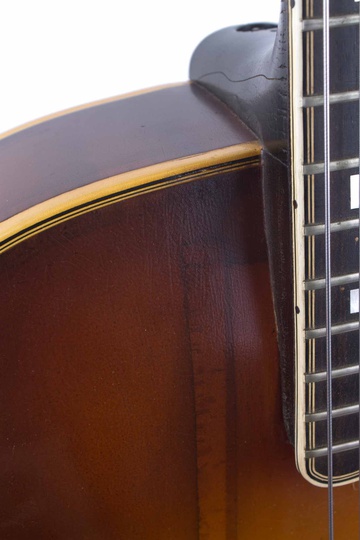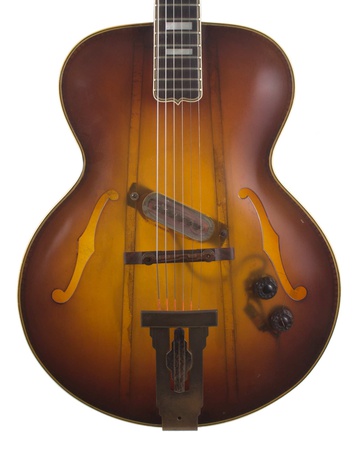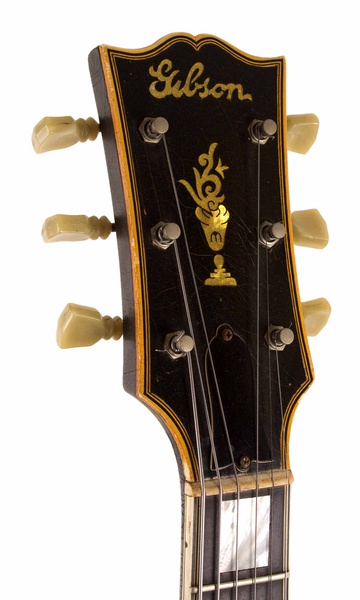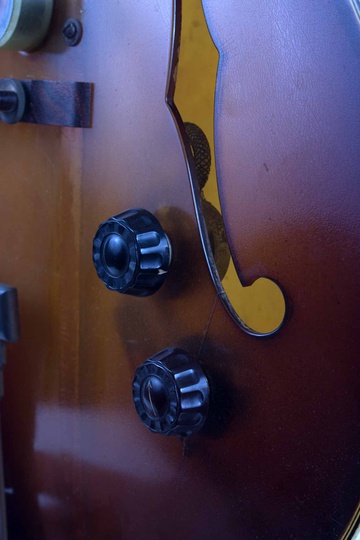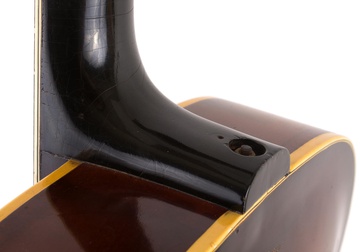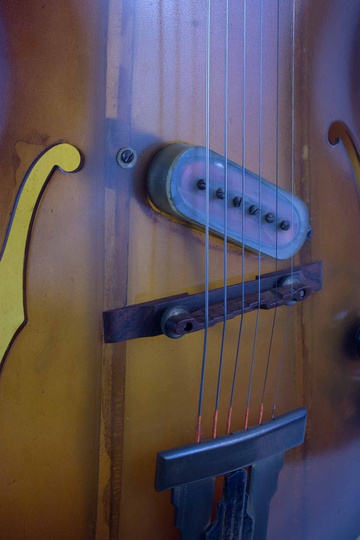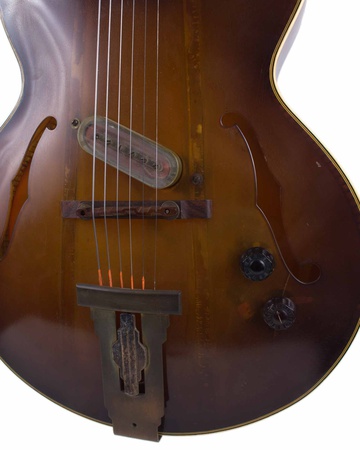
- Old Stuff
- Instruments
- 1941 Gibson L-5 Clear
1941 Gibson L-5 Clear
1941 Gibson L-5 Clear
This is a most unusual, extremely rare and certainly unique Gibson guitar, a complete L-5 with the then brand-new “small diagonal pickup” introduced in 1941. The entire body, and all of its internal structural components and its pickup cover, are made from a clear plastic, almost surely Lucite, the brand name of a polyacrylic developed by DuPont in 1936, and which incidentally replaced glass in the Spitfire fighter plane canopies of WW II. The bindings are of celluloid, the standard material used for guitars at that time. The reasons for this guitar’s existence are not clear but one might logically assume that it was a showpiece to the marketplace for Gibson’s revolutionary new pickup and amplification system, and to also show off the high quality of design and construction of all their top of the line carved-top guitars. There is full mention of the introduciotn of this pickup in May, 1941, on pp.24-25 in Andre Duchessior’s teriffic book “Gibson Electrics - The Classic Years” and in fact the pickup and surrounding area of this very guitar are pictured there.
The top, back, and sides have a light translucent sunburst finish, giving complete visibility of all of the internal parts: the top braces, kerfed linings, and neck and tail blocks, which are also of clear acrylic; also the fingerboard-end support block, which appears to be of red acrylic, pretty wild, Also visible through the body are all the electronics, including original wiring, potentiometers, and tone capacitor. The brown Bakelite control knobs are period correct and original. At least equally interesting is the see-thorough pickup cover, showing off Gibson’s brand-new pickup design, complete with its coil and magnets. Hot new stuff for 1941, to be sure.
There is also a most unusual reinforcement rod of the same dimensions and material as standard Gibson neck truss rods, running through the body from the upper portion of the tail block under the tailpiece, through the neck block, and out the lower area of the heel of the neck, with a recessed 5/16” x 10-32 standard thread brass truss rod adjustment nut showing. The neck itself is of standard late 1930s-early 1940s design; solid maple with triple-bound ebony fingerboard and mother-of-pearl block inlays. The tailpiece has its center section silver plated, an unusual feature; the tuners are later Gibson replacements.
Certainly, this is a unique, one-of-a-kind guitar, showing Gibson’s commitment to a new style of amplified music. No other Gibson even remotely similar is known to exist. $50,000





